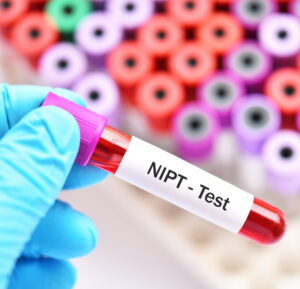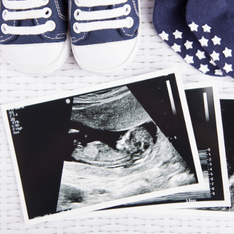
Pregnancy ultrasounds are a routine part of prenatal care, providing essential information about the health of both the mother and the baby. You should have at least two scans during pregnancy, but you may need more in certain situations.
For many expecting mothers, pregnancy scans can be a source of both excitement and nervousness. Fortunately, most scans are simply to ensure the baby is in good health – and you often get the bonus of seeing your little one moving around too!
Here’s everything you need to know about pregnancy ultrasounds, including when and why they are done.
What is an ultrasound?
An ultrasound is a safe and painless imaging test that uses high-frequency sound waves to create images of the inside of the body. During pregnancy, an ultrasound is used to visualise the developing foetus and the structures surrounding it, such as the uterus, ovaries and placenta.
When are pregnancy scans done?
Pregnancy ultrasounds are done at different stages throughout the pregnancy, with each scan providing important information about foetal growth, development and well-being.
Early Pregnancy Scan
Weeks: 6 to 10
This is the first scan that checks the pregnancy site, the number of gestation sacs, the number of babies and the presence of the heartbeat. Also, this scan is done to check the reason for any bleeding and the shape of the uterus and the ovaries.
NIPT Screening Scan & Blood Test

Checks the pregnancy dates & well-being of the foetus. With a simple blood test from your arm, the baby’s sex can be established. This screening will also check the three chromosomal abnormalities regarding Down Syndrome, T21, Edwards T18, and Patau Syndrome, T13.
With all this examination of chromosomes, NIPT can also tell you what sex your baby is as early as 9 weeks.
Nuchal Translucency Scan
Weeks: 11 – 13
A nuchal translucency (NT) scan is typically performed between 11-14 weeks. This scan measures the thickness of the fluid build-up in the folds of the back of the developing baby’s neck. An increased measurement can be a sign of potential congenital abnormalities and will prompt further testing.
Dating Scan
Weeks: 11 – 14
The first ultrasound, a dating scan, is usually done between 8-14 weeks. This scan is used to determine gestational age, estimate the due date and confirm the number of foetuses.
Gender Scan

This scan is performed after the pregnancy is already dated at 12 weeks. The baby’s gender can be seen from 16 weeks onwards. The baby’s well-being & structural development, placental position and amniotic fluid are also checked at this stage.
Anatomy Scan
Weeks: 18 – 24
The anatomy or anomaly scan is usually performed between 18-22 weeks. This scan comprehensively examines the foetal anatomy, including the brain, spine, limbs, heart, and internal organs. It can also identify potential abnormalities or birth defects.
Growth Scan
Weeks: 24 – 36
Growth scans are usually done in the third trimester, typically around 32-36 weeks. This scan provides information on foetal growth and weight, placental location, and amniotic fluid levels.
Why are pregnancy scans done?
Pregnancy ultrasound scans have several important functions that help monitor foetal growth and development and identify any issues.
Check Foetal Health
Ultrasounds can help detect birth defects, genetic disorders, and other foetal abnormalities. They can also detect foetal distress and determine if the pregnancy is high-risk.
Monitor Foetal Growth
Ultrasounds can determine if the foetus is growing within normal limits and is appropriate for their gestational age. This helps identify whether the baby is at risk for growth restriction or other developmental issues.
Confirm Pregnancy
Ultrasounds can detect pregnancy very early on, confirming that the fertilised egg has been implanted in the uterus and the gestational sac and foetal pole have developed.
Pregnancy scans are important tools that help to ensure the health and well-being of both the mother and the baby throughout pregnancy. They’re safe, non-invasive, and provide valuable foetal development and growth information. If you have any concerns, or queries or are unsure about anything related to your pregnancy, it’s important to talk to your healthcare provider.


